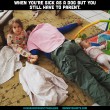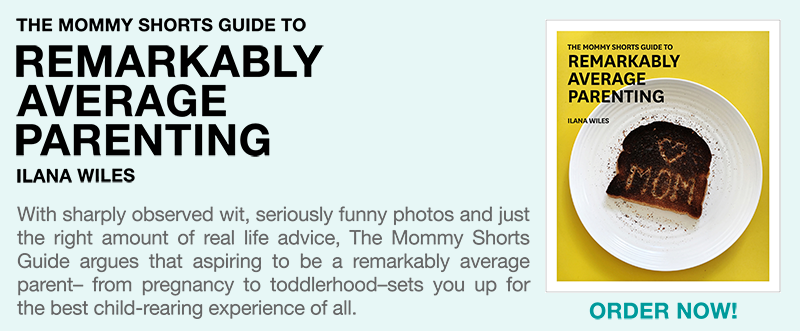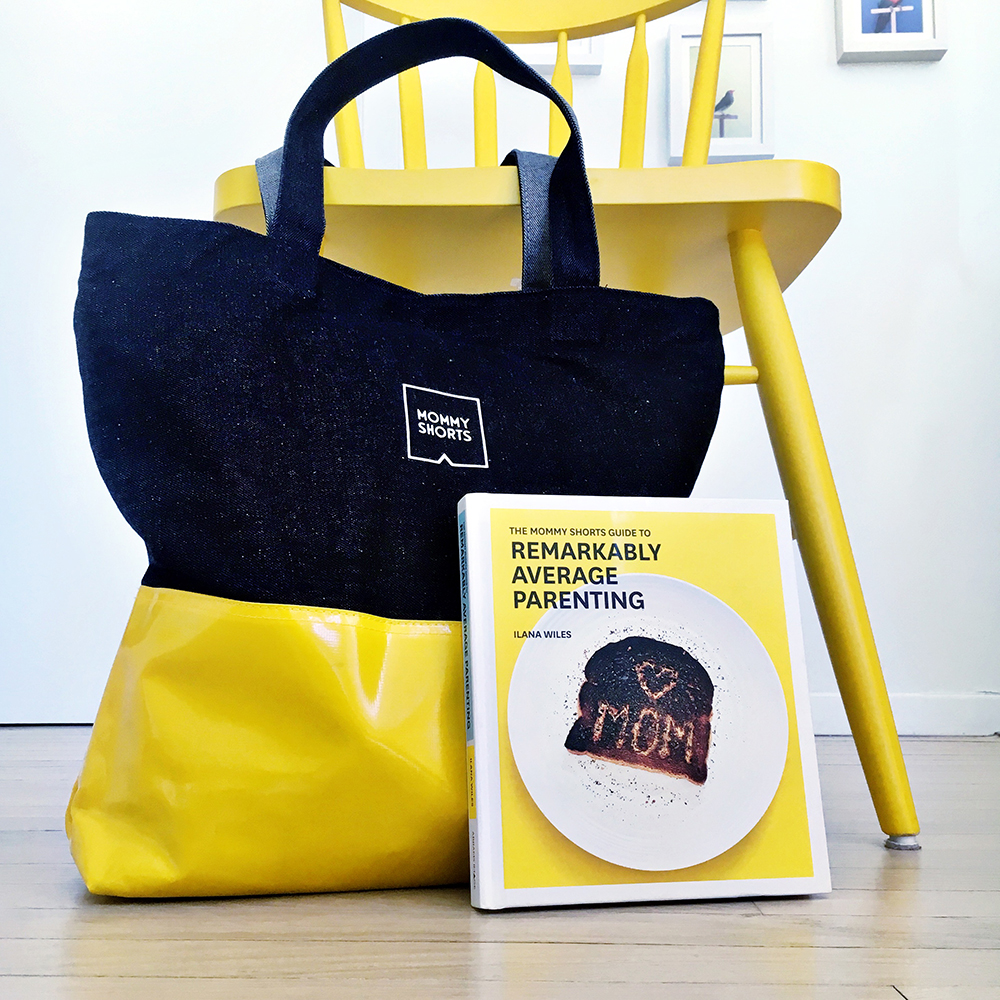 Today Dr. B (our resident early childhood development specialist) returns with the very serious topic of talking to your child about dying and death. It's a heavy subject matter for Mommy Shorts but my heart went out to two readers who recently sent questions to Dr. B asking for guidance.
Today Dr. B (our resident early childhood development specialist) returns with the very serious topic of talking to your child about dying and death. It's a heavy subject matter for Mommy Shorts but my heart went out to two readers who recently sent questions to Dr. B asking for guidance.
One letter was from a woman whose father is quickly deteriorating and she wants to help her four-year-old daughter cope with the inevitable loss and the other letter was from a mom who doesn't know how to explain the death of their family dog to her three-year-old.
Dr. B says the following suggestions can be applied to either situation. It is not intuitively how I would have handled it, so I feel it is very helpful and much-needed advice.
—————————–
When a loved one becomes terminally ill or dies, it is difficult for everyone in the family. Although we want to protect our children from sad feelings and events such as death, it is usually not the best approach.
Children are usually able to sense that something is wrong, especially when a family is grieving. It is important to provide them with developmentally appropriate information so that they don’t misinterpret their family’s grieving as something else which may create unnecessary fear and anxiety.
The way you explain the illness or death depends on your child’s age. The challenge is providing your child with the appropriate amount of information so that they understand what is happening, how it will impact them, and why people are sad or acting differently, without confusing them.
Suggestions On How To Address Death And Dying With Young Children:
Explain what is happening in developmentally appropriate terms. Infants and toddlers are very concrete and literal in their thinking and their understanding is limited to their own experiences. They don’t understand the finality of death and have difficulty understanding that the person or pet that has passed will not come back. Preschoolers are very curious about death, especially the physical aspects of death (e.g., where the person is, the food they will eat, or clothes they will wear), and they may ask several questions to try to grasp the concept. Therefore, your explanations should be clear, simple and factual. For example, you might say, “Grandpa is in the hospital because he is sick and his body isn’t working right. There are a lot of machines in his room that are helping him get better.” Or if the person or pet dies say, “His body stopped working.” Children are scared of the unknown so the best way to reduce their fear is explaining novel things in language they can understand.
Be careful about using language that may cause confusion or fear. Children have a tendency to oversimplify what they learn and think in terms of cause and effect relationships (e.g., if X happens, Y will follow). Be aware of how your child may interpret the language or information you give them. Do not use vague explanations such as “grandpa went away” or “is sleeping” because your child may begin to fear these events whenever they occur and associate them with death. Similarly, words such as “sick” or “boo-boo” should be clarified so that a child does not mistakenly think that any time a person gets sick or gets a boo-boo, there is a possibility that they will die.
Respond to your child's questions in concrete, literal terms with only as much information as your child is asking for. It is important not to read too much into children’s questions and to answer questions one at a time. Responses to questions should be short, truthful, and to the point. For example, when a child asks a question such as, “Where is grandpa now?” a religious or spiritual response is not necessary and your child will probably be satisfied with something like, “He’s at the cemetery.” Similarly, infants and toddlers think death is reversible and it is typical for them to ask multiple questions about when the person or pet is coming back. Keep reiterating in a calm and matter of fact way that the person died and is not coming back. Then direct them to a tangible reminder of the person (e.g., toy or picture).
Try to understand the loss from your child’s perspective. Adults tend to interpret a child’s feelings about death from their own perspective and forget that children do not have the same understanding, fears, and perceptions of death. For instance, an adult may think that a child is upset about the loss of a loved one when they are really upset about something specific about the loss that impacts them. For example, a child may start to cry when they hear “you won’t be able to play at grandma’s house anymore,” because they love swimming in grandma’s pool. It is also common for a child to think that something they did or said could have caused the death. Make sure your child understands that the death was not their fault. Attempt to acknowledge your child’s feelings, understand what is truly upsetting to them, and ask questions about why they are upset so that you can correct any misconceptions they may have.
Acknowledge your child’s feelings. Make sure to validate your child’s feelings about the event by labeling their emotions. If your child becomes upset or angry as a result of the loss, do your best to describe what you think they might be feeling. You might say, “You are sad because I said grandpa can’t play with you anymore.” If they are scared about seeing the person in the hospital, say “You are scared because grandpa looks different,” Or “You are scared because there are a lot of machines attached to grandpa’s body.” Reassure your child that it is okay to have sad or scared feelings, ask questions about what is making them feel that way, and encourage them to talk to you about their feelings.
It is okay to grieve in front of your children. Sometimes adults think it is important to be strong in front of children. But displaying appropriate degrees of emotion in front of children models for them that it is okay to cry when you experience emotional pain. Showing appropriate emotions in response to sad events such as the loss of someone special, helps children learn that it is okay to cry and be open about their feelings when they experience sadness.
Create special ways for your child to remember the person who has passed and to cope with the feeling of loss. When a child becomes upset or asks to see the person who is dying or who passed away, give them something tangible to do when that person comes to mind. For instance, if your child asks to see grandpa, say, “Let’s go look at [our special picture, video, or photo album] of the two of you together.” You might also give your child a special stuffed animal from the person to hug whenever they are thinking of them or suggest that they draw a picture of something that reminds them of the person.
——————–
Dr. B recommends the following book to read with your child:

























All of JDaniel’s grandparents are in their 70’s or 80’s. This sounds like a good book to set aside for the if and when.
Great post. So much good advice. The only thing that really surprised me is the part about: “Where is grandpa now?” a religious or spiritual response is not necessary and your child will probably be satisfied with something like, “He’s at the cemetery.”
I’m not religious, but I can envision some religious people having issues with that. Even though I don’t belong to a church or a specific faith, I still have a tendency to go directly to the “He’s in heaven” response with kids. After all, some say belief in a creator, the Bible, heaven, etc. is a human creation that exists to fulfill a psychological need that we all have to believe in SOMETHING beyond this life. As an adult I can reason with the logic on both sides of all of that… but sometimes I think children need that belief even more than adults. I know I needed it as a child, and the older I got the more distanced I became from religion. But I guess decisions about how to talk to your kids about religion is a whole other topic indeed! Got me thinking though…
I was surprised by that as well. That’s why I said it wasn’t intuitive. But I think Dr. B’s point is that developmentally, introducing the possibilities of an afterlife to a young child can be confusing and is probably not necessary. Especially if you want them to understand that the person/pet is not coming back.
Adults might read more into the question of “where is Grandpa?” because we have our own philosophies and conflictions about death but a child is probably not expecting a deep discussion or asking a larger question.
Saying “he’s at the cemetery” doesn’t mean that you don’t believe in heaven (or something else) and you can introduce that concept at a later time.
But yes, I can see how this could be potentially controversial and it’s definitely food for thought.
She makes so much sense. Thanks so much, I know she’s been busy. I do think Anna’s starting to understand that Stella won’t be back, the other day she asked if we can get a “new Stella.” Great, now i’m crying. I appreciate this very much.
This helps a great deal thank you so much. I will definitely check out the book and it’s helpful emotionally to just know what to say to my daughter about her grandpa. We saw him this past weekend and she seemed to do well with him. She didn’t seem scared of the wheelchair or that grandpa needed help with certain things.
This is also going to help my sister as well since our daughters are only three months apart.
I had to have the hardest conversation of all with my 11 year old daughter about this subject.
I had to tell her it was her who was going to pass away. Thinking about it still makes it hard to breathe.
There are other books that I’d recommend “The Next Place” and OMgosh….I can’t remember the other one. Probably because it’s hard to remember. If anyone really wanted to know, just reach out I’ll look for it.
I completely agree with the notion that children will only continue to ask for info they are comfortable with knowing the answers to. Let their questions be your guide.
Excellent post. Truly a great piece from Dr. B.
We were back east visiting my husband’s mother last month. His father passed away a few years ago. The Hubster took one of our 3yo twins to visit the memorial wall at the family church where his father’s ashes were interred. When she came home she explained to her grandmother and the rest of us that, “Poppy couldn’t come out and see us because he was in the wall.” It was a big tension breaker and lead to a great, honest, to-the-point discussion with our kids about Poppy’s death.
Thanks!
Oh wow. I am so sorry. You just brought tears to me eyes. That’s got to be the hardest thing a person will ever go through.
Life is so frighteningly fragile.
I would love to know the name of the book you recommend.
this is a little heavy for the mommy shorts house, but i’m glad i read it, b/c it is very good advice and it is so hard to talk to kids about this subject, hate the thought of having practice at it one day.
life really is so fragile.
Hugs, lady.
Dr. B, you are right on! This past year we have had to experience many of the questions that children have about death. I had no idea that the concept would be so difficult for our then 4 year-old to comprehend. The year included the death of a teenage next door neighbor (upon seeing her similarly-looking sister in their yard he was frightened and thought that she had come back from the dead!), losing a great grandpa he had never met (and witnessing an open casket funeral), and dealing with the ravages of childhood stage 4 neuroblastoma in one of his favorite classmates.
You have just given sound advice. Many of your suggestions worked for us. It also helps that our religious beliefs put us in a happy place after we die. 🙂
And one other tip I’ve learned on ‘what TO say to kids, about death,’ I would highly advise teaching 4-5+ year-olds about how our bodies can turn back into dirt after we die (we have a compost bin in our backyard to show how old food can turn back into dirt–not that i’m sticking any bodies in there!). AND to share that not everybody agrees on where the ‘thinking parts’ of us go after we die.
Dr. B, you’re so great! Thanks for the advice!
🙁 This is so horrible. We have friends who have had to experience this, and I wouldn’t wish it on anyone.
I’m glad you found it helpful. I will be thinking about you.
My heart aches for you. I have a daughter, and It hurt to read your post. You are so strong. I don’t know if I would be able to continue with life. I will say a prayer for all children who’ve passed on so early in their lives, and have left bruised hearts behind.